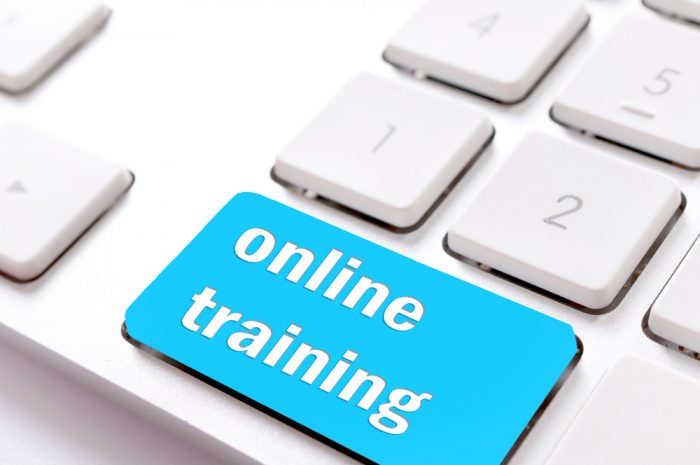Cathy Barrick
FDA Issues Alert for Medline Updated Instructions for Use With Homecare Beds
The Office of Developmental Programs (ODP) has shared this important announcement from the U.S. Food and Drug Administration (FDA) “FDA MedWatch – Medline Updates Instructions for Use for Homecare Beds.”
This recall involves updating instructions for using devices and does not involve removing them from where they are used or sold. The FDA has identified this recall as the most serious type. This device may cause serious injury or death if you continue to use it without following the updated instructions.
What to Do:
Customers have reported incidents of hand control pendants burning, overheating, melting, sparking, causing electrical shock, and catching on fire only for the Medline Basic Beds identified in the alert. Such incidents pose significant risks, including serious injury and death. The FDA is recommending affected beds be left unplugged from wall power unless adjustments that require electricity need to be made.
For Medline Basic Beds and Medlite Homecare Beds identified, only use accessories intended for use with Medline Homecare Beds.
On November 26, Medline sent all affected customers a letter recommending the following actions:
- To mitigate risk during use, strictly adhere to usage guidelines and safety instructions provided with the product as well as the following instructions:
- Do not operate bed above the specified weight limit.
- Ensure none of the bed components are jammed.
- Ensure that there is no obstruction to the movement of the bed.
- Hang the pendant on headboard or footboard when not in use.
- Do not store the pendant on mattress at any time, including while asleep.
- Unplug the bed and call for service if any of the following occur:
- Bed motors appear to be jammed, stalled, or malfunctioning;
- The bed pendant controls aren’t working;
- Pendant wiring is damaged;
- Pendant becomes hot to the touch; and/or
- Smoke, sparking, or other unsafe electrical conditions occur.
- Only use Medline side rails and Medline accessories that are intended for use with Medline Homecare Beds. When using Medline side rails and Medline accessories, follow all applicable instructions for use.
- Do not use non-Medline side rails or non-Medline accessories, including extension cords, with Medline Homecare Beds. The following Medline Side Rail SKUs are compatible with both the Basic Homecare Beds and the Medlite Homecare Beds:
- MDS89697 (Clamp-On Half Rail)
- MDS89698N (Spring Loaded Half Rail)
- MDS89694N (Spring Loaded Full Rail)
- MDS89695N (Economy Full Rail)
Reason for Correction:
Medline has identified electrical safety risks with its Medline Basic Homecare Beds that may lead to fire.
The electrical safety risk is a potential hazard involving the hand control pendant and associated wires for Medline Basic Homecare Beds, SKUs MDR107002E, MDR107002E-4, MDR107003E, MDR107003E-4, and MDR107003ELO. In certain scenarios — such as operating the bed above its specified weight limit, encountering an obstruction to bed movement, or experiencing jammed components/motor, among other potential conditions — the hand pendant and pendant cords may overheat and, in some instances, pose a risk of fire. Medline Industries has received reports of pendants sparking, burning, melting, smoking, and catching on fire.
As of December 18, Medline has reported 12 injuries and one death associated with this issue.
Additionally, Medline has identified patient entrapment as a potential issue when using non-Medline accessories on Medline beds. Non-Medline accessories or a user error when handling the pendant can unintentionally cause the bed to adjust position, entrapping the user’s body between the bed and the accessory. Entrapment could lead to asphyxiation, serious injury, and death. Patients with reduced monitoring, such as those at home, are at increased risk due to delays in detecting and responding to entrapment incidents.
As of December 18, Medline has reported two injuries and one death associated with the use of non-Medline approved accessories.
Device Use:
An AC-powered adjustable hospital bed is a device intended for medical purposes that consists of a bed with a built-in electric motor and remote controls that can be operated by the patient to adjust the height and surface contour of the bed. Hospital beds include side rails that can be latched on or off and moved around.
Contact Information:
Customers in the U.S. with adverse reactions, quality problems, or questions about this recall should contact Medline Industries at 866-359-1704 or via email.
For additional information and specific models affected, visit the FDA’s website.
Registration Now Open for Spring/Summer 2026 ODP QM Certification Classes
The Office of Developmental Programs (ODP) has shared ODPANN 26-024. This announcement provides information on how to register for new 2026 Quality Management (QM) Certification virtual classes.
Key things you should know about the virtual class:
- Class size is limited to 32 participants.
- Classes are held over 2 consecutive days, from 9:30 am – 2:30 pm.
- Prerequisite modules are required to prepare learners for the class and must be completed prior to attending class.
Spring/Summer 2026 Class Dates:
- April 27 – 28
- May 11 – 12
- June 15 – 16
- July 13 – 14
- July 27 – 28
Register here. Please review the announcement for more details.
PADDC Seeks Your Input on Draft Goals for 2027–2031 Five-Year Plan

The Pennsylvania Developmental Disabilities Council (PADDC) is seeking public input on goals and objectives for its next 5-year plan (2027–2031). Over the past 14 months, PADDC has:
- Gathered public feedback on barriers and concerns that impact the lives of individuals with developmental disabilities and their families in Pennsylvania;
- Distributed surveys and conducted listening tours; and
- Analyzed state data, services, and challenges to identify unmet needs for individuals with developmental disabilities and their families.
The results of these activities led PADDC to develop goals and objectives in the following focus areas: self-advocacy; information sharing; and services and supports. Before the plan is finalized, the Council is seeking public comments to ensure they are considering a variety of viewpoints.
PADDC invites you to take its survey by March 27, 2026. Complete the survey here.
ODP Publishes Room and Board FAQ Version 2
The Office of Developmental Programs (ODP) has shared ODPANN 26-023. The purpose of this announcement is to inform all interested parties of the ODP publication of the Room and Board FAQ Version 2.
Please view the announcement for more details. The FAQ can be found below:
ACRE Trainings Now Available
The Arc of PA invites you to the upcoming ACRE trainings! If you want to earn an ACRE certification or learn best practices in Supported Employment and Community Participation Services, sign up for one of these upcoming trainings.
- February 18–20
- March 11–13
- April 8–10
You can find more information regarding each training, including registration information and costs at The Arc of PA’s website.
ODP Announces a New Training Available on MyODP
The Office of Developmental Programs (ODP) has shared ODPANN 26-022 to announce a new Participant Directed Services training, “Understanding, Promoting, and Monitoring Participant Directed Services in Pennsylvania,” now available on MyODP.
This course is available within the Participant Directed Services category under the ‘Topics’ drop-down menu on MyODP’s website or by navigating directly to the course.
Please view the announcement for more details.
ODP Shares Updated Guidance for Reviewing Data for PBC Measures
The Office of Developmental Programs (ODP) has shared an update to ODPANN 24-082. The Guidance for Reviewing Data for Performance-Based Contracting (PBC) Measures RM-IM 01.2 and 01.3 has been updated to reflect enhancements to the Incident Reporting Overview Dashboard and to the Incident Management Review Report. Updates to this announcement appear underlined in red.
The guidance can be found on the MyODP PBC Residential Services Page within the Data Folder.
QA&I Cycle 2 and HCBS Rule Licensing Inspection Statewide Report Released
The Office of Developmental Programs (ODP) has announced the release of ODPANN 26-021. The purpose of this communication is to announce the Quality Assessment and Improvement (QA&I) and Home & Community-Based Settings Rule Licensing Inspection Statewide Report, which includes QA&I Cycle 2 and licensing inspection data from fiscal years (FY) 2022-2023, 2023-2024, and 2024-2025.
This report is located directly on the MyODP website in the QA&I Reports section.
Please view the announcement for more details.
ODP Shares the ISAC Provider Performance Review Subcommittee 2026 Meeting Schedule
The Pennsylvania Department of Human Services (DHS) Office of Developmental Programs (ODP) has shared the Information Sharing and Advisory Committee (ISAC) Provider Performance Review Subcommittee 2026 Meeting Schedule.
Time: The meetings are scheduled to take place on Thursdays, from 1:00 pm – 4:00 pm, unless otherwise specified.
Save the Dates:
- March 5, 2026
- June 4, 2026, 9:00 am – 12:00 pm
- September 3, 2026
- December 3, 2026
Location: Meetings will be held remotely. Links to register and participate will be shared closer to the meeting date.
If you have any questions, please contact TaWanda Jackson.
















